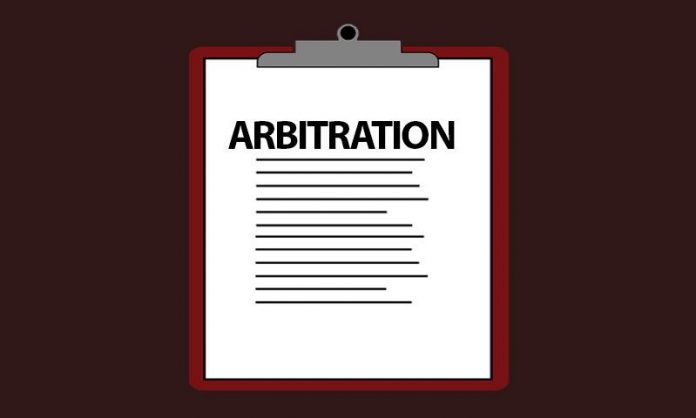This article has been written by Saurabh Gupta pursuing the Diploma in Law Firm Practice: Research, Drafting, Briefing and Client Management from LawSikho. This article has been edited by Kritika Sharma (Associate, Lawsikho) and Smriti Katiyar (Associate, Lawsikho).
Table of Contents
Introduction
Arbitration is the method of dispute resolution involving one or more neutral third parties who are usually agreed to by the disputing parties and whose decision is binding. The importance of arbitration proceedings has been recognized recently and laws of the seat of arbitration govern the arbitration proceedings, i.e. Lex Arbitri, which are generally non-specific and broad. It is often contended that the parties to arbitration must be treated equally. In Arbitration proceedings, the parties have the discretion to decide the type of arbitration proceedings to be conducted, i.e. Ad Hoc, Institutional or Statutory.
Ad Hoc arbitration proceedings
Ad Hoc arbitration proceedings are the proceedings where the parties may establish their own rules of the procedure without arbitral institutions such as the International Chamber of Commerce or London court of International Arbitration. Own rules of procedure include determining all the facets of the arbitration by themselves, such as the number of arbitrators to be appointed, the procedure to conduct the arbitration, etc. The specific drawn rules are generally set forth in a submission agreement known as ‘submission to arbitration’ which is agreed once the dispute emerges. This agreement confirms the appointment of the tribunal, the substantive law, the seat of arbitration, and detailed procedural rules with respect to the exchange of documents, statements of witness, etc.
In Ad hoc arbitration proceedings, parties designate an appointing authority to select the arbitrator(s) and a new arbitrator is appointed if the parties do not agree with the appointed arbitrator. If the parties fail to designate any appointing authority, then the national courts are authorized to appoint arbitrators. Moreover, the recognizable advantage of Ad Hoc arbitration is that it is more flexible, cheaper than institutional proceedings and faster because it is shaped to meet the wishes of the parties’ intent to arbitrate and facts of that particular dispute. However, in these proceedings, the effectiveness is dependent on the cooperation between parties and their arbitrators and the failure of the same could lead to no arbitral tribunal and thus, a failure of Arbitration.
Institutional arbitration proceedings
Institutional Arbitration proceedings are administered by an arbitral institution such as the International Chamber of Commerce, International Centre for Dispute Resolutions, thereby having its own arbitration rules. Also, the arbitral institutions themselves do not arbitrate the merits of the dispute between parties; rather it shall be the responsibility of the arbitrators to do so. The arbitrators are virtually not the employees of the arbitral institution and are just private persons selected by the parties. If the parties do not agree upon the arbitrator, the host institution would act as an “appointing authority”.
The arbitral institution does not arbitrate on its own, but it assists the proceedings by providing a clear set of rules and timelines of arbitration that regulate the conduct of the arbitration, with support from the trained staff for administering the arbitration proceedings and laying out a panel of arbitrators so that the parties could choose from to decide the dispute. If the parties wish to consent to arbitration in consonance with the established rules of an institution, they shall include the institution’s rulebook in their arbitration agreement. These established rules also undergo periodic revision after consultation with the experienced practitioners and after taking into account the new developments in the arbitration law. However, considering the high administrative fees which the arbitral institutions charge for their services, and the use of facilities are major drawbacks of institutional proceedings.
Statutory proceedings
As opposed to the above-mentioned arbitration proceedings, statutory arbitration proceeding is a mandatory arbitration thrusted on the parties by operation of law . The parties have no other option but to obey the law of land. Apparently, statutory arbitration differs from the above two proceedings as it is a mandatory arbitration that lacks consent of parties and is binding on the parties as law of the land.
There are about 24 such Central Acts that refer certain types of disputes to arbitration, and initiate statutory arbitration proceedings. Section 2(4) of the Arbitration and Conciliation Act, 1996 lays down that it shall apply to every statutory arbitration under any other enactment for the time being in force as if the arbitration were pursuant to an arbitration agreement and as if that other enactment were an arbitration agreement. However, the provisions of the said act apply as long as they are inconsistent with the particular provisions of the specific legislation; in such cases, the provisions of the said legislations apply. It should be noted that when there is a statutory requirement of arbitration which has the effect of being an agreement wherein the dispute could be referred to arbitration, the questions of the validity of the arbitration agreement by the parties will not be raised, and the statutory arbitration provisions will be presumed to be valid.
Conclusion
All we can say from the above analysis is that all Statutory, Institutional and Ad Hoc arbitration proceedings have their strengths and weaknesses. While Institutional proceedings are more structured, ad hoc proceedings are more flexible Statutory proceedings are more rigid, it can be safely concluded that none of the arbitration proceedings can be declared well suited for all circumstances and depending on the merits of each case, parties can rely on any one of the arbitration proceedings discussed above for resolving their legal disputes.
Students of Lawsikho courses regularly produce writing assignments and work on practical exercises as a part of their coursework and develop themselves in real-life practical skills.
LawSikho has created a telegram group for exchanging legal knowledge, referrals, and various opportunities. You can click on this link and join:https://t.me/joinchat/J_0YrBa4IBSHdpuTfQO_sA
Follow us on Instagram and subscribe to our YouTube channel for more amazing legal content.
 Serato DJ Crack 2025Serato DJ PRO Crack
Serato DJ Crack 2025Serato DJ PRO Crack










 Allow notifications
Allow notifications


